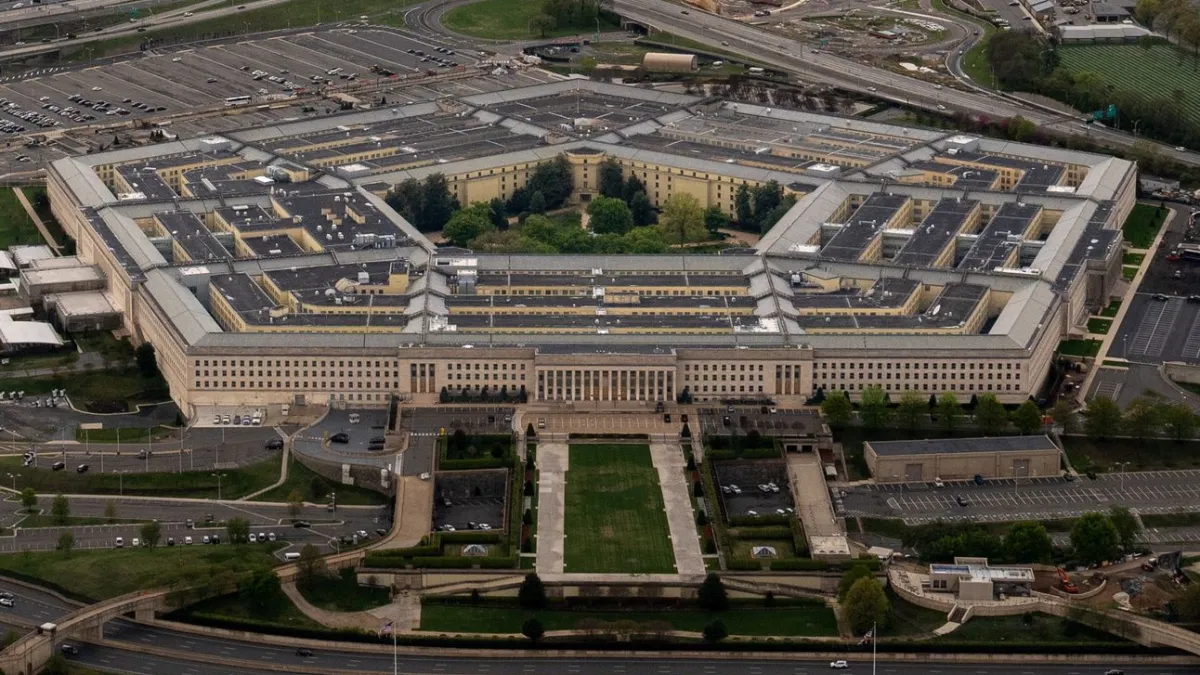
Congress is back from a two-week recess and Republicans will be working to pull together the details of their massive budget reconciliation bill — the “one big, beautiful bill” that includes the bulk of President Donald Trump’s legislative agenda, including a permanent extension of the 2017 tax cuts set to expire at the end of the year.
Republicans on the House and Senate Armed Services Committees on Sunday unveiled details for their portion of the plan, a measure that would increase Pentagon spending by $150 billion, lifting the total defense budget to more than $1 trillion for the first time. See the full text here.
The $150 billion boost is in line with the amount sought by Senate Republicans and $50 billion more than the GOP budget resolution called for on the House side, marking a win for defense hawks. The additional funding includes:
* $34 billion for shipbuilding and improved infrastructure in the maritime industrial base;
* $25 billion for President Donald Trump’s proposed “Golden Dome” national missile-defense shield;
* $21 billion to restock and expand production of munitions;
* $14 billion to scale up production of new technologies and “expedite delivery of low-cost, attritable weapons systems” to fighters;
* $13 billion for modernization of the nuclear triad and infrastructure needed for nuclear weapons manufacturing;
* $12 billion to “enhance military readiness,” including infrastructure and military depots and shipyards;
* $11 billion for military operations in the IndoPacific region, including improvements to Taiwan’s military defense capabilities;
* $9 billion to improve quality of life for service members, including housing, healthcare and assistance for families;
* $7 billion to speed delivery of next-generation fighter jets and drones.
* $5 billion for border enforcement;
* $400 million for investments in IT and other systems to help the Defense Department pass required audits.
Republicans said the extra funding was sorely needed to reverse a decline in the U.S. defense industrial base, arguing that defense spending as a share of the economy has dropped to its lowest levels since before World War II. “America’s deterrence is failing and without a generational investment in our national defense, we will lose the ability to defeat our adversaries,” House Armed Services Committee Chair Mike Rogers said in a statement. “With this bill, we have the opportunity to get back on track and restore our national security and global leadership.”
The House Armed Services panel is scheduled to consider the legislation tomorrow morning. The measure represents the first part of the larger bill that will be pieced together with portions from other committees. At least four other House committees are scheduled to consider their portions of the legislation this week. The House Judiciary Committee on Monday released the text of its bill, including a $175 billion funding boost and some notable immigration policy changes, ahead of a planned Wednesday markup.
House Speaker Mike Johnson wants to finalize the broader budget reconciliation bill and pass it in his chamber by Memorial Day. Senate Majority Leader John Thune told reporters Monday that the timeline in the Senate would be determined by the deadline for raising the debt ceiling, a date likely to be over the summer. Republicans plan to raise the debt limit as part of their bill. Treasury Secretary Scott Bessent told reporters that the hope is to have the tax legislation done by July 4.
Democrats have warned that the budget reconciliation bill as a whole will cut programs that Americans rely on to pay for tax cuts that overwhelmingly benefit the wealthy.
Rep. Adam Smith, the top Democrat on the Armed Services Committee, said in a statement that, while there may be bipartisan backing for some increases in defense spending and support for military members and their families, the investments should be made as part of the normal annual appropriations process. He criticized the special process Republicans are using.
“This legislation would increase defense spending by $150 billion through a partisan budget reconciliation gimmick,” he said. “It will be paid for by devastating cuts that can only come from critical programs like Medicaid, the Supplemental Nutrition Assistance Program (SNAP), and student loan and grant programs at the Department of Education. And to add insult to injury, this will all be part of a legislative package that provides $4.5 trillion in tax cuts for the wealthy but does nothing to lower costs for American families.”
The bottom line: The defense portion of the reconciliation bill is one of the easy parts. The sections that will be more contentious within the party, like the details of the tax cuts and potential healthcare spending cuts, are still ahead. The next four weeks promise to be busy, — and critical for budget watchers.